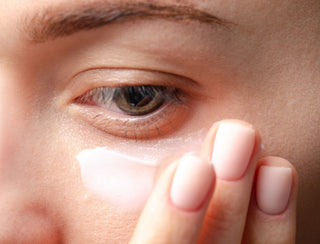When it comes to skincare there are only a handful of ingredients that stand the test of time and hold up to the harsh scrutiny of science.
Vitamin A is one of these ingredients.
Vitamin A
Most of us have heard about retinol (a form of Vitamin A), which has become one of the most popular and talked about ingredients in the last few years, but not all of us may know what it actually does, what sort of products it is found in or how to use it effectively.
While I don’t rely on trends or popular ingredients to decide on my selection of products, I do consider retinol to be the gold-standard for treating wrinkles, fine lines, uneven texture, acne and pigmentation.
What Makes Retinol So Unique?
Retinol stands out in skincare due to its proven effectiveness in addressing various concerns, such as reducing fine lines and wrinkles, improving skin texture, and fading hyperpigmentation.
It also stimulates cellular renewal, boosts collagen production, and unclogs pores, making it adaptable for various skincare routines.
Retinol in skincare offers lasting benefits, making it an essential ingredient for achieving healthy and radiant skin.
Why Is Vitamin A So Important?
As one of the main building blocks of collagen and elastin, Vitamin A is a key antioxidant that’s necessary for maintaining healthy skin.
What makes Vitamin A unique is that it communicates directly with the cells and acts as a signaling molecule that regulates cellular development and function.
The cells in your body are in constant communication and work in harmony with each other. It's Vitamin A's job to maintain order and ensure that all the cells are working together and doing what they're supposed to.
Types Of Vitamin A
You've likely encountered Vitamin A in your skincare, and if not, you've probably heard of retinoids.
Retinoids are a class of compounds that are all derived from Vitamin A.
Topical derivatives of Vitamin A include:
- Retinyl
- Palmitate Retinyl
- Acetate Retinal
- Retinol
- Adapalene
- Tretinoin
- Retinoic Acid
How Vitamin A Works
To be effective, all Vitamin A derivatives must first go through a conversion process and become retinoic acid.
Once converted, retinoic acid is responsible for speeding up cellular turnover, reorganizing melanin cells, repairing DNA damage caused by sun exposure and signaling the cells to make new collagen, whilst also improving the skin's firmness and elasticity.
Prescription vs Over-The-Counter
Pure retinoic acid can only be found in prescription topicals such as Tretinoin and Retin-A. These products contain a high concentration of the active ingredient, which may cause adverse reactions such as dryness, peeling, irritation and photo sensitivity.
This is because the skin has to build up its Vitamin A receptors to be able to utilize such high amounts of retinoic acid and in some people, it may never be fully tolerated.
A better way to deliver Vitamin A into the skin is by using, (you guessed it), retinol.
Retinols have come a long way in the last decade, offering the same benefits of prescription Tretinoin or Retin-A, but with fewer negative effects.
When starting on retinol, the most important thing to keep in mind is to begin slow and be patient. It can take six to eight weeks to see the full effects of retinol, but the long-term results are definitely worth it.

Feeling overwhelmed with skincare products and ingredients? Step into Skin Devotee Facial Studio in Philadelphia and get a relaxing, customized facial and let us help you reach your skin goals without the stress. Book a facial today!



